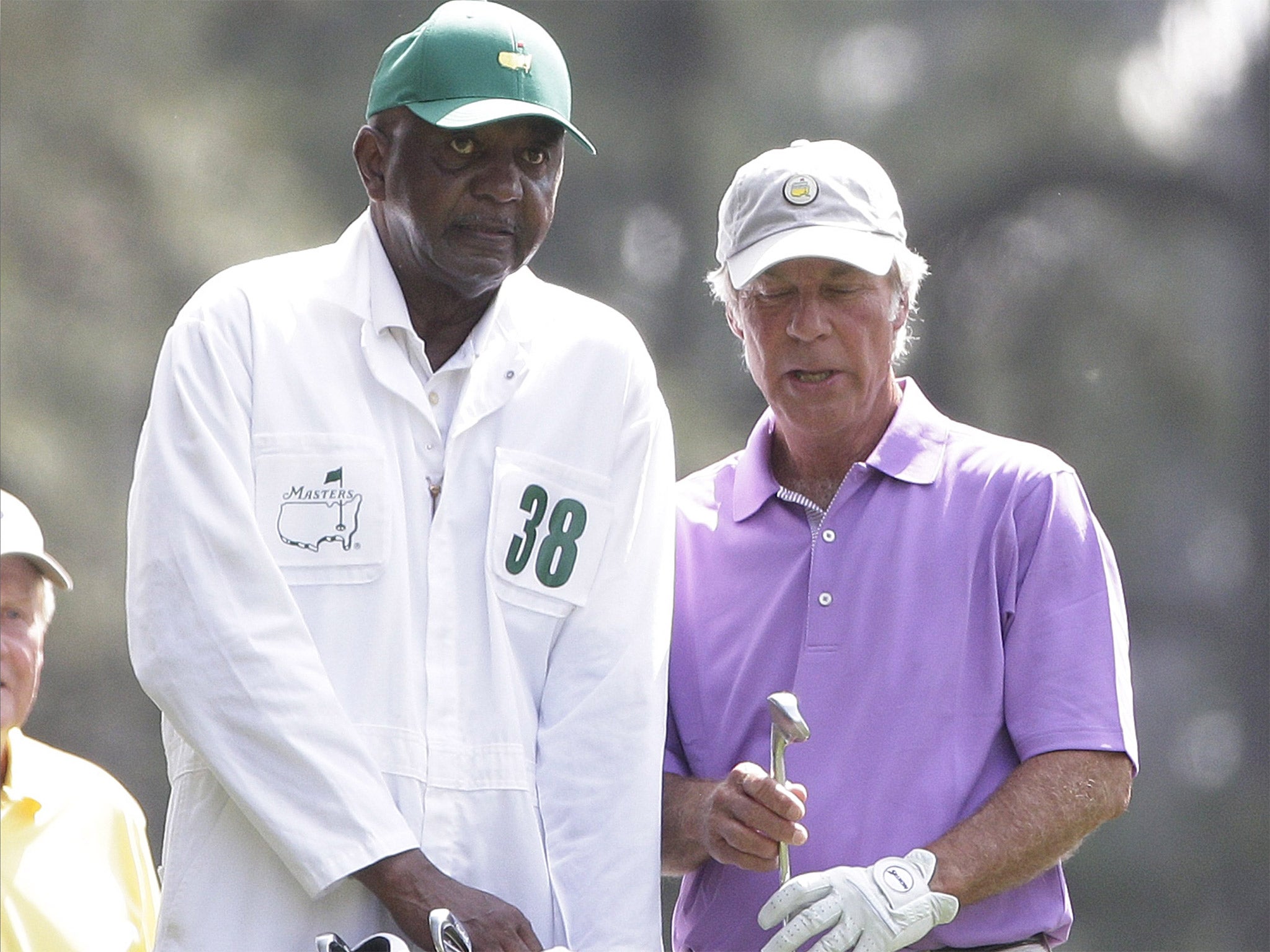Masters 2015: Augusta’s reverence for old masters is a valuable lesson for today’s big hitters
COMMENT: Stars of today can learn a thing or two from the history books

The deference shown to Ben Crenshaw at the Masters was a parable, as much of golf is, about recognising the contributions of the ancients and making plain their relevance to the whippersnappers coining it in today.
If society wants to know how best to accommodate a life past its prime it should come to Augusta National, a place that rewards the dynamism of youth with arguably the greatest prize in golf, and properly recognises those who contributed heavily in the past, without whom the golden present would not be possible.
The Masters is fertile ground for the cynic. Of course it is. The secretive nature of the institution, the obsessive control wielded by a powerful and wealthy body, the anachronistic attachment to old attitudes and practices, the sensitive relationship with race, the unrepresentative nature of an overwhelmingly Caucasian demographic, are all troubling elements at which the political warrior might throw darts.
But there is great benevolence, too, and lessons that we would do well to heed, particularly in the respect Augusta affords those who have seen better days. And one way or another we are all heading towards that happy conclusion.
Masters 2015 in pictures
Show all 37Crenshaw knew he was toast as a player long ago. His tournament, which ended after two days on 32 over par, was largely ceremonial. Jason Dufner and Bill Haas could have done without two rounds hanging about waiting for the old man to hit, but they carried on dutifully anyway. His tee shot at 17 barely reached the crossing point that bisects the fairway, roughly 150 yards from the tee. Dufner’s face was a picture, but then it always is.
At the end of the round Billy Payne, the chairman of the Augusta National Committee, was waiting at the 18th to clap Crenshaw in. His wife and daughters were among those applauding tearfully by the last green. The reigning champion Bubba Watson, resplendent in Green Jacket, formed part of the guard of honour that ushered the 63-year-old Crenshaw back to the clubhouse.
The old boy felt valued. He had played 44 times around this pasture, won it twice. He had left his mark and now Augusta was leaving one of its own. “I feel like I’ve won the tournament,” he said after signing his last card. “The people – I just will never forget that as long as I live.
“It’s hard to believe it’s been 44 years, but it has. I am old enough to have played in a much different era, seen the course change dramatically. It needed to, and it’s a test and I’m kind of amazed at how it stands now with my friend Jordan [Spieth].”
The torch passed from one Texan to another. The pair shared a practice round on Wednesday with Tiger Woods. For Spieth it was a way of saying thank you for the support and guidance received on the way up, the tips, the pointers, those little pearls of wisdom that make a difference for a callow kid wet behind the ears. It was fitting, then, that the Spieth show marched into the final day carrying the standard for American golf, as Crenshaw did fleetingly in his day.
The reverence bestowed on the giants of the past is formalised here in the opening ceremony. Arnold Palmer, Jack Nicklaus and Gary Player, the founding fathers of the modern game, are given their due each year. Some might flinch at the saccharine presentation, but strip that away and there is real substance, not only in reminding this generation of how they got here, but what might be achieved when the shoulders no longer turn.
According to Forbes, Palmer’s annual earnings of £28m placed him third in the money list for sporting retirees in 2014 behind Michael Jordan (£60m) and David Beckham (£50m). Nicklaus, the pauper, banked £18m.
I leave you with this anecdote from Player that proves Palmer was always pure gold. “He comes to South Africa, and we go down the gold mine. We go into a room and there must be a billion dollars’ worth of gold in there, and they bring out one of the gold bars.
“The man puts it on the table with two hands, and he says, ‘Anybody that can pick this up can have it.’ Arnie says, ‘Ask him if I can try.’ He goes, ‘Sure.’ And Arnold goes and picks it up, and this guy’s eyes went this big. He says, ‘I only work here.’ Arnold says, ‘You did work here.’
“Part of that is he’s got deep pockets and short arms and never bought me a lunch [laughter].”
Palmer: “You wouldn’t give the ducks a drink if you owned Lake Okeechobee [even more laughter].”
Subscribe to Independent Premium to bookmark this article
Want to bookmark your favourite articles and stories to read or reference later? Start your Independent Premium subscription today.

Join our commenting forum
Join thought-provoking conversations, follow other Independent readers and see their replies